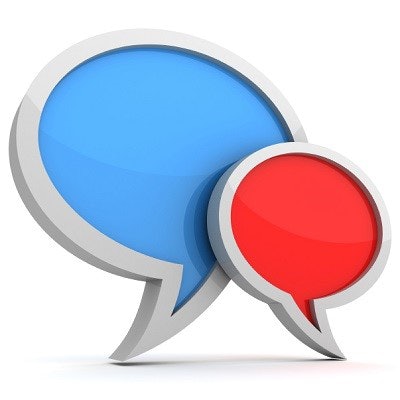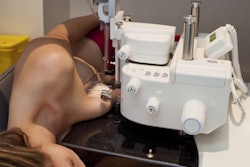
Using chatbot software can help orient and educate women who are scheduled to undergo a breast biopsy about the procedure, according to a study published in the September issue of the Journal of the American College of Radiology.
The findings suggest that there's yet another way to offer patients information about breast care procedures, wrote a team led by Dr. Alison Chetlen of Penn State Health in Hershey, PA.
"This pilot supports that a chatbot can positively impact the quality of perceived care, with specific improvements in patients' medical knowledge," the group wrote.
A chatbot is a computer program that can communicate with a user via text or speech. It is designed to distribute information "while providing a touch of human-like connection and improving timely, patient-centric healthcare dissemination," according to Chetlen and colleagues (JACR, September 2019, Vol. 16:9, Part B, pp. 1305-1308).
"Our chatbot provided an anonymous, private, low-cost, nontime-limited opportunity for patients to learn about the next phase of their breast care treatment, management, or procedure," the authors noted.
The study was conducted over the course of eight weeks, and it included 55 women who had received a BI-RADS 4 or BI-RADS 5 category rating of a cancer lesion on a breast imaging study and a recommendation to undergo biopsy. The women used an iPad to interact with the chatbot program; after using it, they were invited to complete a survey that assessed whether they felt more knowledgeable. The survey also assessed where they preferred to interact with the chatbot (smartphone, tablet, laptop, or home computer).
The researchers found the following:
- 86% of the women considered themselves very or somewhat technologically savvy.
- 57% preferred to interact with the chatbot via smartphone.
- 87% said the software improved their understanding of the procedure, regardless of their perceived technology proficiency.
- 74% said the chatbot improved the quality of care by "providing healthcare information."
- 95% said they trusted the information coming from the software program.
Overall, the chatbot program was successful in communicating information to patients about breast biopsies, the researchers concluded.
"Implementation of a chatbot on a larger scale could improve overall healthcare knowledge and value, improve patient outcomes, and quality of life," the group wrote. "We envision our chatbot able to provide initial counseling, lead users into the correct clinical care service line, and provide self-help information."




















